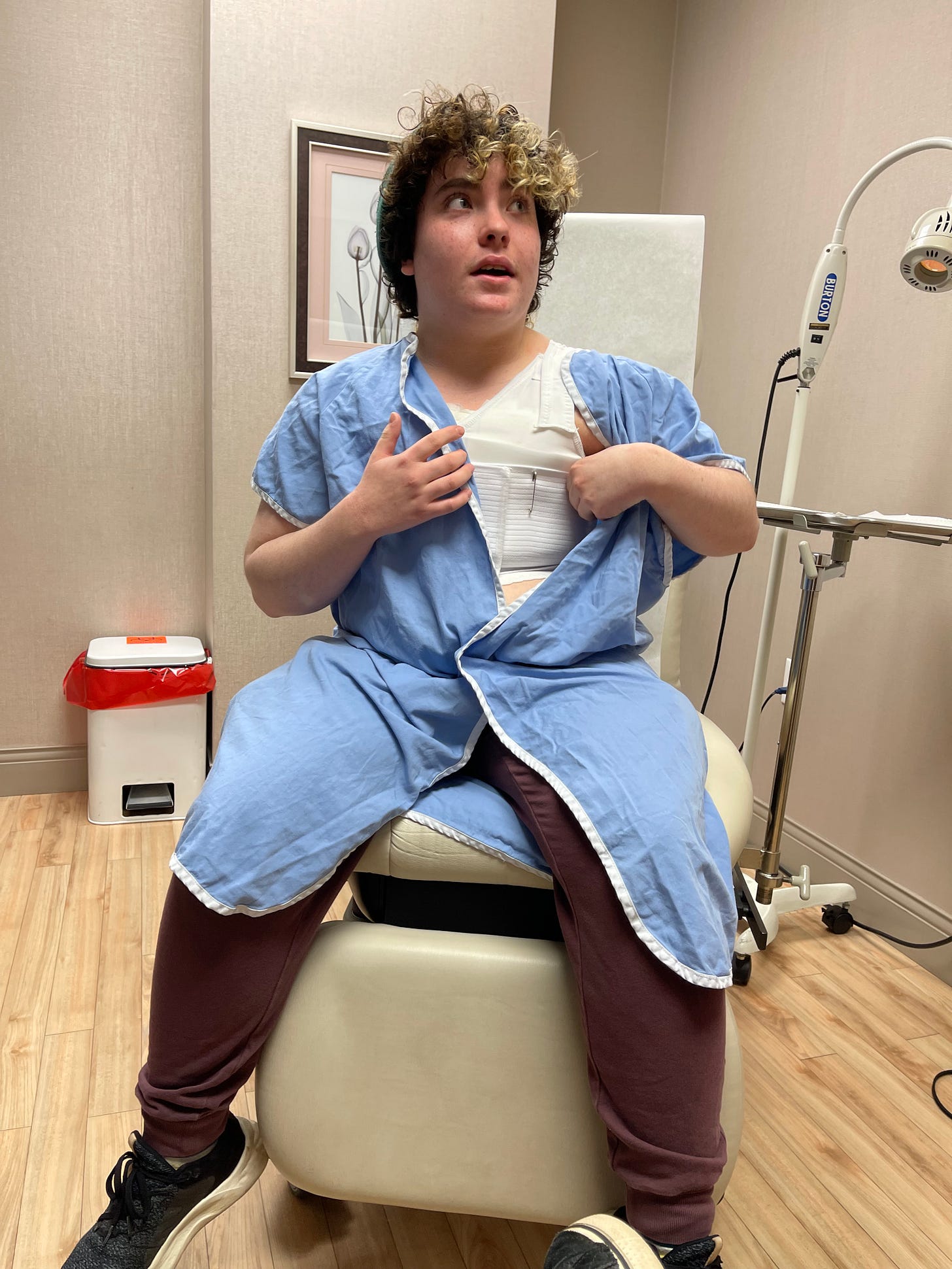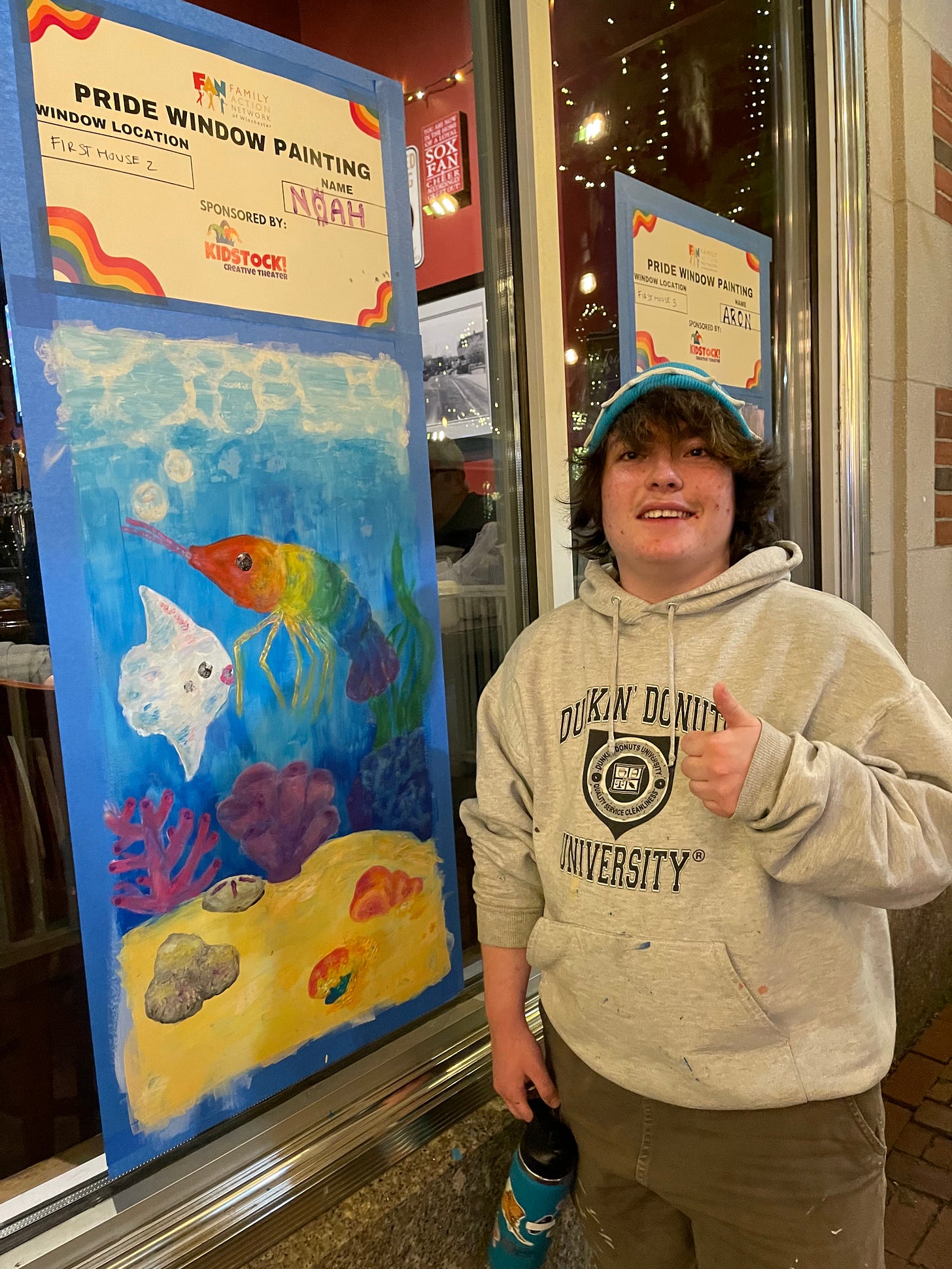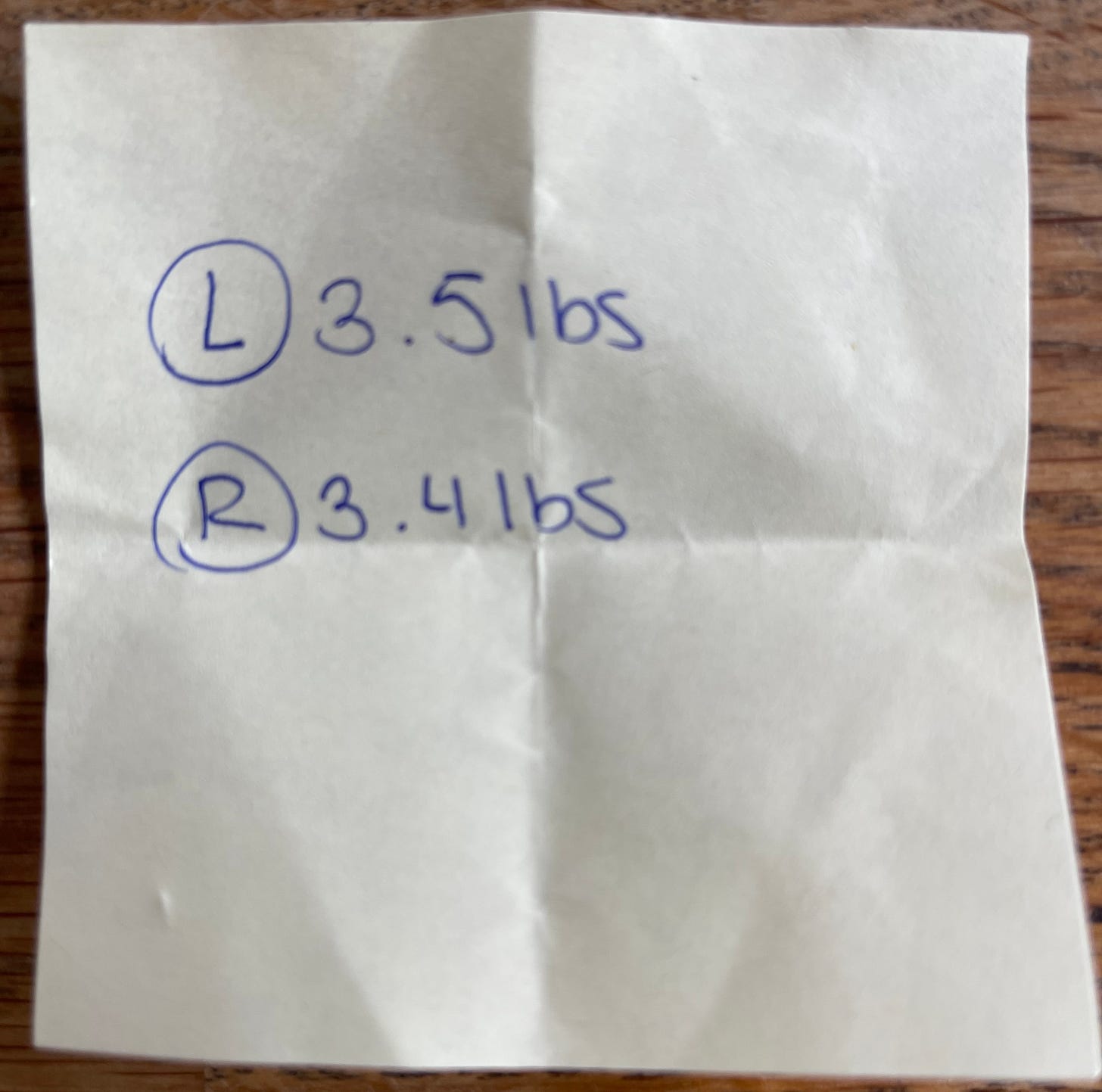How to Play Ball
Despite what half the country seems to think, it took Raegan and me a couple of years to schedule top surgery for our underage child. At 17, we finally agreed to move ahead. "Or else," to paraphrase the kid, "worse things could happen." Unbeknownst to us, for years our child had been using copious amounts of toilet paper to avoid contact with parts that shouldn't be there. His gender dysmorphia was so bad he would punch his breasts to demonstrate how little they meant to him, and how offended he was by their presence. For our child, each period was traumatic: a hard reminder of a cruel falsehood.
On May 21st, South Carolina's governor banned gender-affirming care for minors. The law bars health professionals from overseeing hormone therapy, prescribing puberty-blockers, and performing gender-transition surgery on patients under 18. This means that if we lived in South Carolina (or 25 other states), my wife, our doctors, and I, would all be considered criminals—along with, presumably, our child.
More teenage criminals are to be found on our school sports teams where participation by trans girls is still a hot-button issue. As of September 2023, 23 states have banned trans kids from participating in the school sport consistent with their gender identity.
At the heart of these laws is the idea that a person's ability to identify their own gender can be called into question. GOAT comedian, Dave Chappelle imprudently declared that "gender is a fact." To which I ask, but isn't it a fact that people are able to identify their own gender? Why should this notion be considered controversial? The implication is that children are simply choosing the gender they prefer. Ironically, Chappelle himself is making a choice: the choice to put genetics and genitals ahead of brains and self-awareness.
Oddly, the South Carolina ban still lets doctors prescribe blockers for "precocious puberty," which can happen to a child as young as 4. In other words, it's okay to go against God's will in some cases, but not others. There's an implied admission: mistakes happen.
Similarly, in 17 states the laws around trans kids and sports only pertain to trans girls. Only 5 states restrict girls and boys. The rest are just fine with trans boys playing sports. Because folks aren't really concerned about trans-ness, they're just worried a trans girl will hold an advantage over their own kid, and they regard this advantage as unfair. They justify this prejudice by asserting a trans kid's gender isn't real, that it's somehow less than. A fabrication, even. A simulacrum.
A trans kid's gender identity should never be considered made up or un-factual.
But, hey! You know what are made up? Sports! Every single one of them. A bunch of people got together, invented some "rules," and called it a thing. Has it been clinically proven that after advancing the ball ten yards you get a first down? Of course not. "Downs" are made up. Is it a fact your team is better than another because a ball crossed one line more times than it crossed another line? Lines are made up.
The only thing that might be real is the ball itself, though of course the word "ball" is made up. Also, the concept of "words" is made up. The Hawaiian word for ball is poepoe. Many Hawaiian words repeat sounds because the alphabet has so few letters. Hawaiians would rather repeat sounds than introduce new ones.
In the US, we keep our school sports gendered and separate in the interest of fairness and to avoid injury. People worry about the sanctity of girls' sports. However, a girl who is too small or too weak will not be allowed to play even if their gender matches that of the sport. We do not discriminate against those who make themselves more proficient at a sport through diet and exercise, even though genetics plays a role. We call these people "athletes." Athletes are encouraged to dominate on the field as a result of their superior ability to build muscle via genes that are not the Y chromosome. These girls are to be celebrated.
I'm a small person—through no fault of my own. Five-foot-three. They wouldn't let me play football in high school. That was fair. That was how it worked. Nobody ever said, hey, this kid should play football even though he looks five years younger than everyone else. There was no talk of other players having an unfair advantage. The genes that made you a giant, those were the right genes for football.
I'm not complaining. I never wanted to play football, just the drums, which thankfully don't discriminate on the basis of size or genetics or gender identity. But they don't hand out college scholarships for marching band because nobody goes to hear the band. The high school marching band is the comic relief of football. Dads never yell at the band to tighten up or get in tune because nobody cares if the band is tight or in tune. Nobody even cares if a trans girl is in the band.
Noah has no interest in playing a sport, or in playing in a band. But of course none of that has any bearing on anything. He should be free to do either.
Of course, I'm speaking from a place of non-trans-ness, but perhaps the word "trans" shouldn't exist. A trans person shouldn't have to be referred to as a "trans person" just as much as someone who gets a giant tumor removed isn't called a "formerly tumored person." A trans person is simply someone who was born with the wrong parts and did what they felt comfortable doing to change those parts to better reflect their actual gender. They should just be "a person."
"Adulthood" is an invention. Who made it our job to tell kids what to do, or how to live, when we'll be done living long before they are? Life is hard enough for trans kids without barring them from playing the sport they love. In 2024, half of all US states passed bans on gender-affirming care—laws meant to invalidate the very existence of trans kids. This is a fact. It's not the sports we should be worried about. The game of life isn't fair.





Amazingly powerful essay! Everyone should share! Thank you Steven!